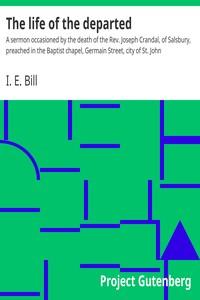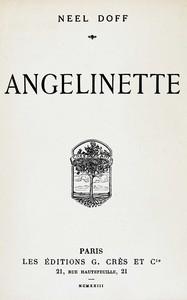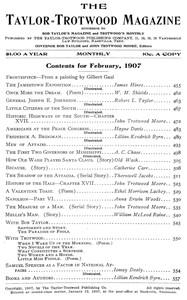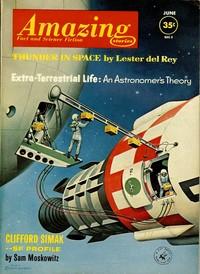Read this ebook for free! No credit card needed, absolutely nothing to pay.
Words: 23350 in 7 pages
This is an ebook sharing website. You can read the uploaded ebooks for free here. No credit cards needed, nothing to pay. If you want to own a digital copy of the ebook, or want to read offline with your favorite ebook-reader, then you can choose to buy and download the ebook.
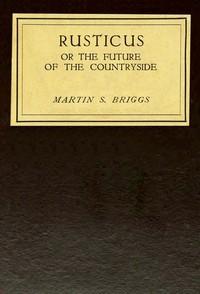

: Rusticus by Briggs Martin S Martin Shaw - Great Britain Economic conditions; Land use Rural Great Britain; Country life Great Britain
CHAP. PAGE
SOME ADDRESSES 95
"SO THIS IS ENGLAND!"
On every side a wail is rising over the irreparable damage that is being done to the rural England that we all claim to love. The change that has occurred is most evident to those who have not witnessed its steady progress, rapid as it has been. To realise what has happened, let us put ourselves in the place of an Englishman who is now returning home after a sojourn of twenty years in some remote Eastern outpost of our Empire. Imagine him as a sensitive observer like Doughty or Kinglake, a man who has learned to appreciate the savage beauty of the Arabian desert, the very antithesis of his own land. But now at last the sand has eaten into his soul, and he is longing to see the English countryside that he remembers so well. He thinks of small green fields, of little grey churches with rooks cawing among the elms, of running water, even of grey skies, in fact of everything that is most characteristically English. There is nothing in our poetry that better describes this England than Kipling's "Sussex," and Kipling knew all about the East.
Our traveller lands at Folkestone eagerly anticipating his journey through Kent, and, in order to see as much as possible of hedgerows and villages and fields on the way up to London, he charters a motor-car. There is something rather daring, to his mind, in this business of the car; on his last visit to England in 1907 cars were not entirely unknown, but there was then a touch of novelty about them. His driver gingerly threads his way up from the harbour through a maze of hooting charabancs and yelping Fords, with several hairbreadth escapes which make the traveller wish himself back on his lurching camel. But soon Folkestone is left behind, and he settles down to a contemplation of the number-plate of the car in front, while the fumes of its exhaust mingle with those of his own Corona. He expects to find some changes in the aspect of England, but then of course there was the Town-Planning Act in 1909, so that nothing very unpleasant need be feared, and at any rate one misses the East Kent Coalfield by coming this way. The road is very wide and very straight; there is no dust. A small lighthouse with black and white sides, crowned by a red lamp busily blinking in broad daylight, indicates a cross-roads. Yes, this new route avoids the streets of Sandgate and Hythe, which must be very crowded in these days, but the wire fences are a poor substitute for green hedges. And these terrible petrol-stations every few yards with their glaring red and yellow pumps are very trying to the eyes. Still there are some old landmarks left: the hoardings are bigger than ever, and some of them bear the familiar legends of Edwardian days.
He looks forward to passing through Lenham, Charing, and Harrietsham--three beautiful villages on the main road--but as each is approached his car swerves along the new racing-track and thus avoids the village High Street, rejoining the old main road, widened beyond recognition, a little farther on. He passes through a great cutting gashed through the chalk. Felled trees lie by the road, old walls are pulled down, all bends are straightened out, everything is cleared away to allow the cars and charabancs to roar through the countryside. But is it countryside any longer? More than anything else in this nightmare drive he is impressed by the New Architecture, which appears to consist mainly of bungalows.
The bungalow as he knew it in the East was a large, low, cool, white building surrounded by verandahs, as un-English in appearance as anything could be. But these bungalows are quite different, and seem to be thrown haphazard all over the place, along the main roads for miles beyond every town. Shoddy, ugly, vulgar shacks they are, recalling to his mind some of the worst aspects of life in the Middle West as depicted on the films. The materials of which they are constructed are cheap and nasty. Round each bungalow is a collection of smaller shacks, where the Baby Austin and the chickens live; and in place of embowering trees he sees a jungle of wireless poles and clothes-props. Untidiness, vulgarity, Americanism, discord of colouring and form, seem to have invaded every village through which he passes.
Nor is this change confined to roads and buildings. The whole character of the villages is altered. Smocks and sunbonnets have gone for ever, and with them most of the old village crafts. The blacksmith's day is done. Artificial-silk leg-wear and gramophone-records fill the windows of the village store, a blatant cinema has appeared next door, and most people do their shopping in London.
So this is England!
BEFORE THE DELUGE
In order to understand the changes that have taken place in the English countryside during the last century or so, and in order to forecast probable future tendencies, one must first endeavour to analyse the charm of the unspoiled English village and landscape before coal and petrol began to dominate our whole life. That charm is universally admitted but not always rationally appreciated. To begin with, ruin in itself is not a worthy subject for admiration. An American critic is said to have observed to an Englishman:
"What thoughtful people your ancestors were; they not only built churches for you to worship in but ruined abbeys for you to admire."
Free books android app tbrJar TBR JAR Read Free books online gutenberg
More posts by @FreeBooks
